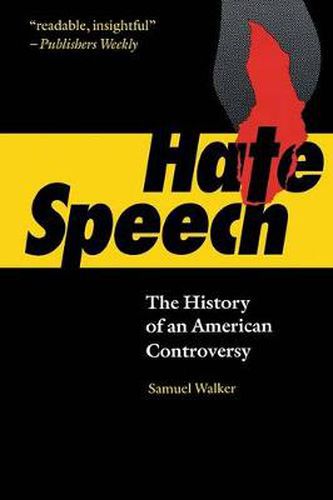Readings Newsletter
Become a Readings Member to make your shopping experience even easier.
Sign in or sign up for free!
You’re not far away from qualifying for FREE standard shipping within Australia
You’ve qualified for FREE standard shipping within Australia
The cart is loading…






The First Amendment protects even the most offensive forms of expression: racial slurs, hateful religious propaganda, and cross-burning. No other county in the world offers the same kind of protection to offensive speech. How did this free speech tradition develop? Hate Speech provides the first comprehensive account of the history of the hate speech controversy in the United States. Samuel Walker examines the issue, from the conflicts over the Ku Klux Klan in the 1920s and American Nazi groups in the 1930s, tot he famous Skokie episode in 1977-78, and the campus culture wars of the 1990s.
The author argues that the civil rights movement played a central role in developing this country’s strong free speech tradition. The courts were very concerned about protecting the provocative and even offensive forms of expression by civil rights forces. Civil rights groups, therefore, preferred to protect rather than restrict offensive speech-even if it meant protecting racist speech.
$9.00 standard shipping within Australia
FREE standard shipping within Australia for orders over $100.00
Express & International shipping calculated at checkout
The First Amendment protects even the most offensive forms of expression: racial slurs, hateful religious propaganda, and cross-burning. No other county in the world offers the same kind of protection to offensive speech. How did this free speech tradition develop? Hate Speech provides the first comprehensive account of the history of the hate speech controversy in the United States. Samuel Walker examines the issue, from the conflicts over the Ku Klux Klan in the 1920s and American Nazi groups in the 1930s, tot he famous Skokie episode in 1977-78, and the campus culture wars of the 1990s.
The author argues that the civil rights movement played a central role in developing this country’s strong free speech tradition. The courts were very concerned about protecting the provocative and even offensive forms of expression by civil rights forces. Civil rights groups, therefore, preferred to protect rather than restrict offensive speech-even if it meant protecting racist speech.